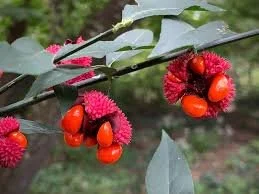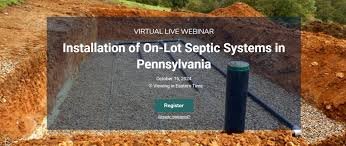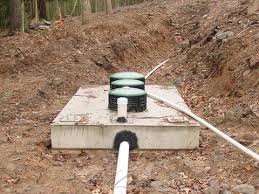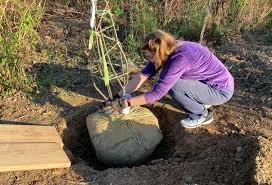
Events & Programs

Native Tree and Shrub Sale
Planting native trees and shrubs is a powerful way to turn your landscape into a wildlife wonderland while also improving local streams and Twin Lakes health and water quality. But choosing the best species for your specific landscape conditions can be a challenge. Join a Penn State Extension Urban Forester and members of the Master Watershed Steward program for an interactive webinar where we’ll cover the species selection from this year’s Annual Native Tree and Shrub fundraiser.
Event Details
This is a current Penn State Extension program since May. There is a 90 minute informative webinar discussing the ongoing Annual Native Tree and Shrub Fall fundraiser.
Registrants who tune in live or watch the webinar recording will receive a $5 discount code to order from our Native Tree and Shrub sale.
All species discussed will be available for purchase until August 27 (or while supplies last) through our annual sale. You’ll learn about our recommended species list for sunny and shady spots, dry to wet conditions, and everything in between. No matter what the conditions of your yard or other landscape, there’s a beneficial native tree or shrub perfect for the spot.
To Register
Call the Penn State Extension registrar office at 1-877-345-0691 for assistance over the phone. They are there to help on weekdays between 8:30am - 5pm Eastern Time. Reference Event WBN-G-2471
Stewards of Twin Lakes will promote this program more fully in spring 2025.

Pennsylvania Invasive Species: Understanding Range Shifts
ABOUT THE LIVE WEBINAR
Pennsylvania has identified over 150 invasive plants, insects, pathogens, and animals that significantly impact both the environment and agricultural production, resulting in annual economic losses amounting to hundreds of millions of dollars. The Pennsylvania Invasive Species webinar is committed to addressing this critical issue. Throughout the session, we will highlight some of the most problematic invasive species found in Pennsylvania, examine their methods of establishment, and discuss effective strategies to mitigate their spread. By delving into the complexities of invasive species challenges, our goal is to empower communities and spotlight the ongoing efforts led by state agencies. Join us as we showcase ongoing efforts and empower communities to combat this threat.
EVENT DETAILS
Invasive species often have several advantages over native species, such as widespread human-aided dispersal and release from natural enemies. But do invasive species also have an advantage when it comes to climate change? In this session, botanical garden scientist Eve Beaury, will discuss how both invasive and native species are adapting to and surviving environmental changes.

On-Lot Septic System Questions and Answers
ABOUT THE LIVE WEBINAR
Join us for the concluding event in our On-Lot Septic System Webinar series, featuring a dynamic live question-and-answer format. This interactive session is designed for septic system owners, land developers, and anyone interested in exploring the critical connections between on-lot septic systems, water quality, and public health. Engage directly with experts as they address your questions and provide valuable insights to enhance your understanding and management of on-lot septic systems.
EVENT DETAILS
During this free, one-hour webinar, participants are encouraged to bring their specific questions about on-lot septic systems.
Who is this for?
Septic system owners and users
Homeowner associations and community organizations
Real estate agents and home inspectors
Property managers
Land developers and builders
Local government officials
Public health officials
What will you learn?
Gain insights and expert advice from septic system professionals during a live question-and-answer session
To Register: Register Here
Do On-Lot Septic Systems Impact Water Quality?
This session will explore how on-lot septic systems affect groundwater, surface water, and the broader environment. Whether you are a septic system owner, land developer, or simply interested in understanding the relationship between on-lot septic systems, water quality, and public health, this webinar offers valuable insights for you.
Who is this for?
Septic system owners and users
Homeowner associations and community organizations
Real estate agents and home inspectors
Property managers
Land developers and builders
Local government officials
Public health officials
What will you learn?
How septic effluent make it to groundwater and nearby surface water sources (e.g., ponds, lakes, and rivers)
Common contaminants in domestic wastewater
Regulations designed to protect water resources
How to test the water in your private water system
Actions you can take as a septic system user to protect water quality

2nd Twin Lakes Education Session
Join Us to Protect the Health and Beauty of Twin Lakes!
Twin Lakes Community Member
The health and beauty of Twin Lakes matter to all of us. That’s why a passionate group of local homeowners has come together as Stewards of Twin Lakes—a grassroots initiative dedicated to safeguarding our cherished watershed.
We invite you to an engaging educational session where you can learn about current lake issues, discover what we’re doing to address them, and share your valuable insights and ideas.
What to Expect:
Informative discussions on key challenges facing our lake
Opportunities to voice your thoughts and suggestions
A chance to connect with your neighbors who care about our community
Join us for an afternoon of knowledge and camaraderie with wine and cheese!
Details:
Date: October 26th
Time: 4 PM to 5 PM
Limited to the first 20 participant
Please RSVP to secure your spot: Email us at info@stewardsoftwinlakes.org or REGISTER HERE.
Together, we can make a difference for Twin Lakes. We hope to see you there!
Warm regards,
Stewards of Twin Lakes

Installation of On-Lot Septic Systems in Pennsylvania PART 2
ABOUT THE LIVE WEBINAR
The second webinar in the On-Lot Septic System Series, Installation of On-Lot Septic Systems, will cover the planning and installation processes for septic systems in Pennsylvania. You'll learn about the permit process and how to choose the right contractor for your on-lot septic system installation.
EVENT DETAILS
Participants in this free, one-hour webinar will gain valuable insights into the placement and installation of on-lot septic systems.

Introduction to On-Lot Septic Systems Part 1
Learn about on-lot septic systems and their environmental importance!
Join Penn State Extension for "Introduction to On-Lot Septic Systems," the first in our On-Lot Septic System Webinar Series. This session provides a comprehensive overview of how on-lot septic systems treat and dispose of wastewater. Whether you're a septic system owner, real estate agent, property manager, or environmental advocate, this webinar is designed to inform and engage a wide audience. Participants will learn about the key components, types, and functions of on-lot septic systems, as well as their critical role in protecting both environmental and human health.
Register By: October 1, 2024
This event is free of charge.
Who is this for?
Septic system owners and users
Homeowner associations and community organizations
Real estate agents and home inspectors
Property managers
Land developers and builders
Local government officials
Public health officials
Environmental groups
Anyone interested in water resources
What will you learn?
The definition of an on-lot septic system
Components of an on-lot septic system
Types of on-lot septic systems
How septic systems treat wastewater
Environmental and human health importance of septic systems

Proper Native Tree Planting for Long-Term Success
Who is this for?
Native tree and shrub sale customers
Environmental stewards and volunteers
Landowners
Watershed associations and environmental groups
Anyone interested in learning about proper tree-planting techniques
What you will learn
How to evaluate your planting site for sun and wind exposure and drainage conditions
Recommended proximity to structures such as power lines and buildings for the 18 Tree and Shrub Sale species
Other considerations, such as potential de-icer exposure/tree salt tolerance and visual interest
Proper tree planting techniques, focused on containerized trees and shrubs, including planting depth, root management, soil care, companion planting, and pest prevention
Ongoing maintenance and aftercare, including watering, pruning, and damage inspection

Watershed Friendly Native Planting
Watershed-friendly native plants are beautifully adapted to local climate and soil conditions, often requiring less water and maintenance compared to non-native species. By incorporating these plants into your garden, you not only enhance your yard’s natural beauty but also contribute to the health of the local watershed. Join Master Watershed Stewards to discover the importance of native plants in promoting soil health, improving water quality, and supporting native wildlife. Learn how you can make a positive impact on your environment right from your own backyard!

Invasive Aquatic Species at Twin Lakes Talk
Understanding aquatic invasive species requires distinguishing between native, non-native, and invasive species.
Native species are plants or animals that naturally live and thrive in a specific ecosystem, having evolved there without human intervention.
Non-native species are introduced to a new habitat, intentionally or unintentionally by humans, and cannot reproduce or spread without human assistance.
Invasive species are non-native organisms brought by humans, capable of reproducing, establishing, and causing economic, environmental, and health issues.
Aquatic invasive species specifically disrupt waterways with their aggressive nature, leading to numerous problems.
Learn what these potential plants and animals are in Twin Lakes, What can be done today and How to try and control their introduction.
